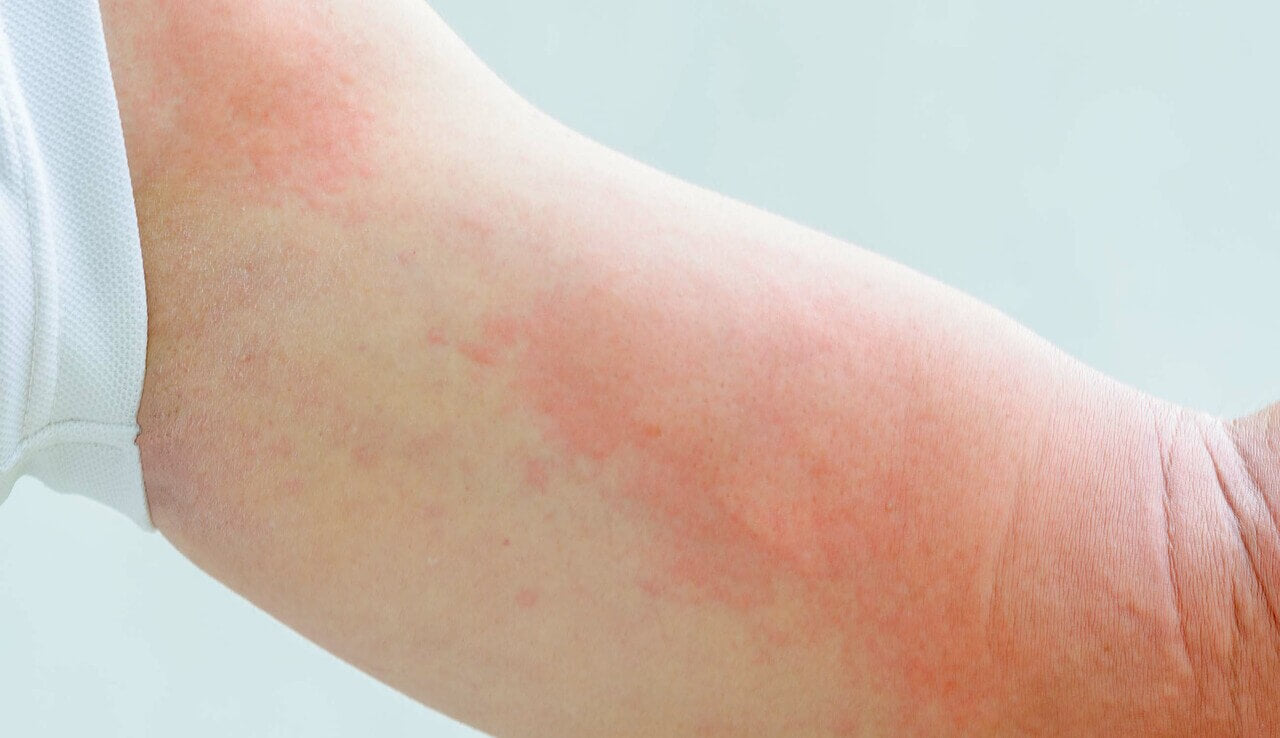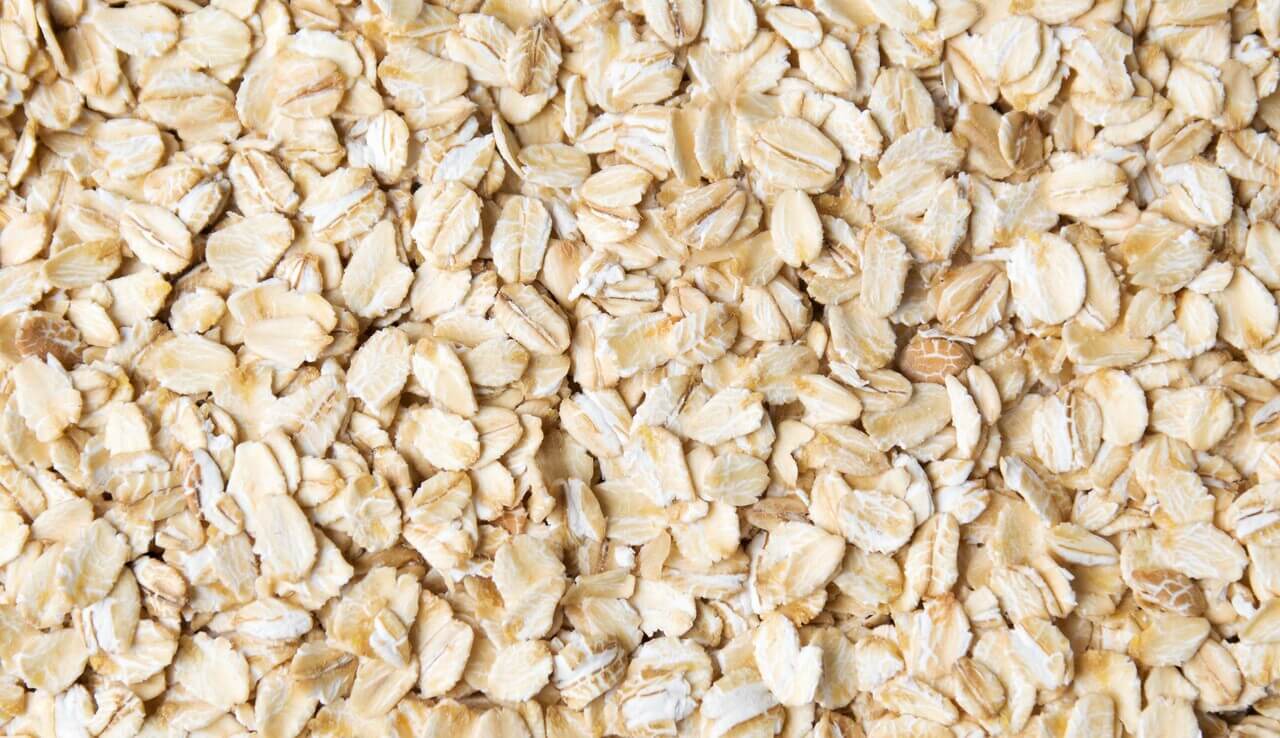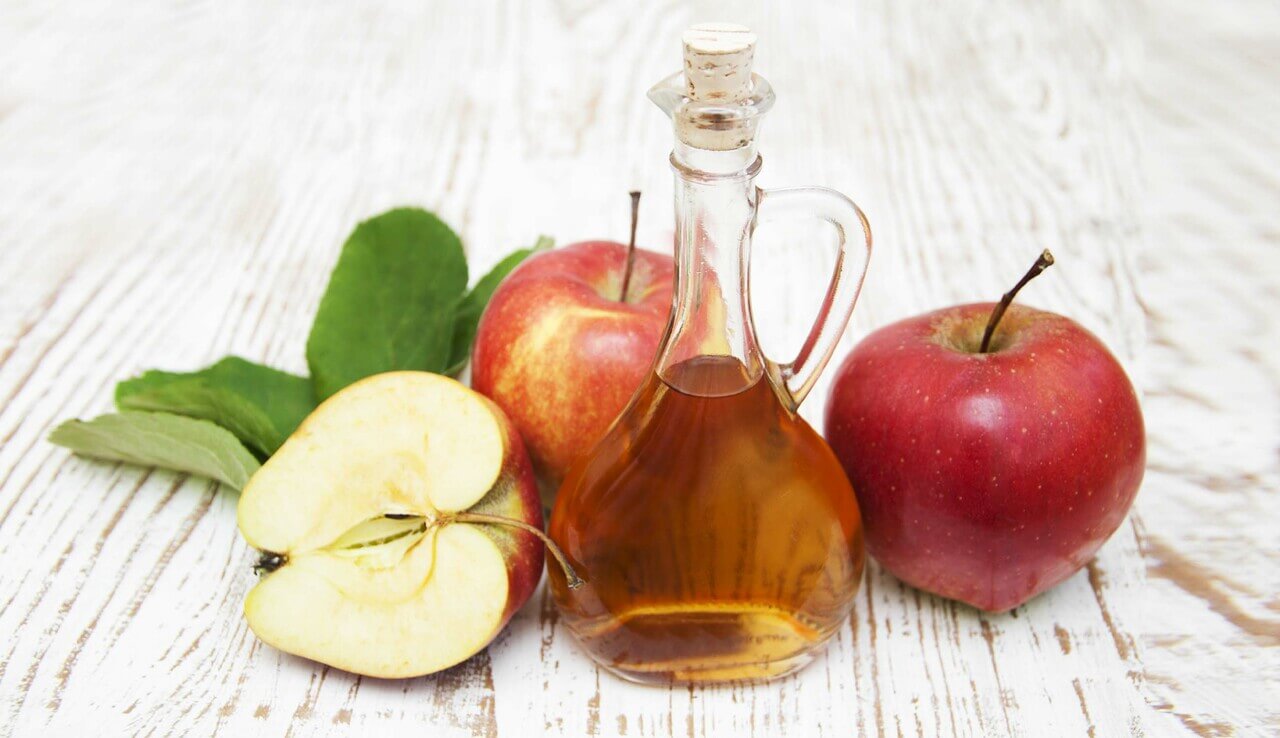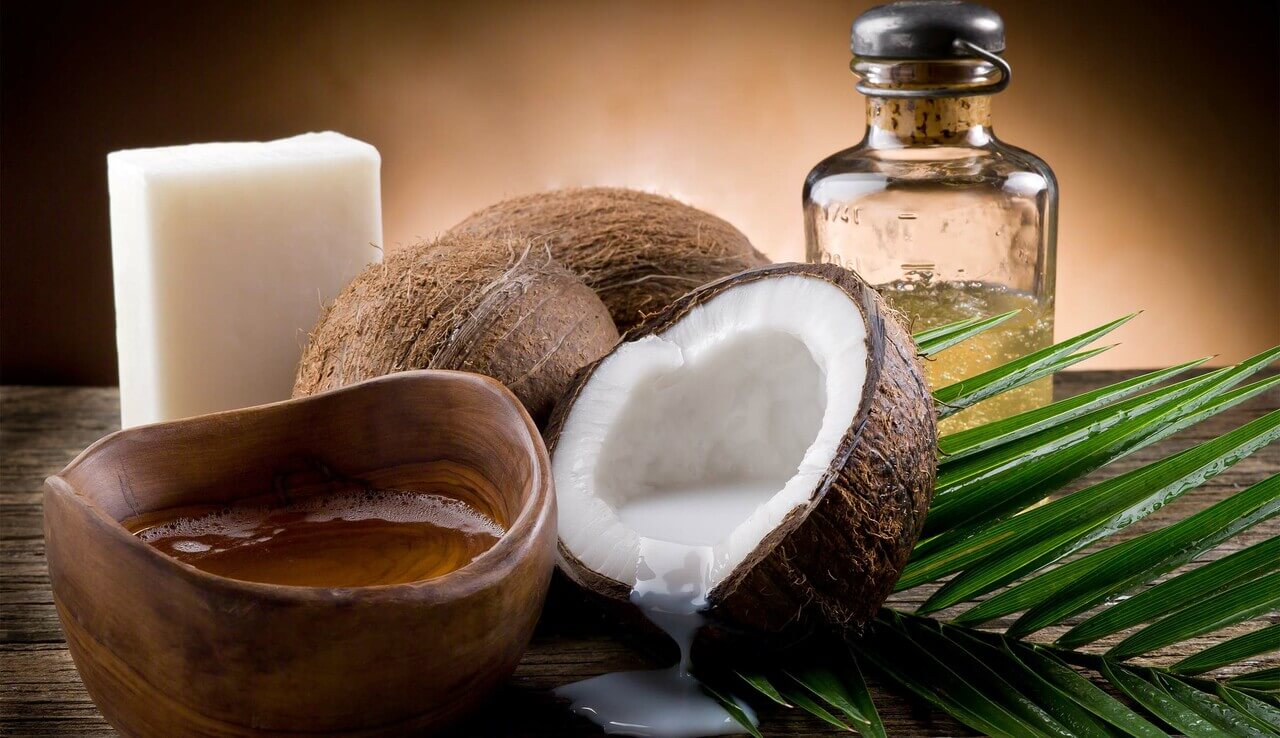Looking for eczema relief? These ingredients can help!
Posted on August 24, 2024 Written by: 100% PURE®

Whether it’s , rosacea, or psoriasis, dealing with any kind of skin-related issue is never ideal. And unfortunately, it’s often the worst in winter when your skin is at odds with the elements.
is no different! With its itching, redness, and swelling, eczema is a recipe for discomfort. It may even leave you feeling a bit less like yourself.
While it doesn’t always feel like it, it is possible to get your symptoms under control so you can feel comfortable in your skin again. And that’s what we’re going to talk about today! But first, let’s talk more about what eczema looks and feels like.

According to Mayo Clinic, eczema is a generic term for atopic dermatitis, which is known for making your skin red and itchy. And while it’s particularly common in children, symptoms can appear at any age.
Such symptoms include:
-
Dry, patchy skin
-
An itching sensation
-
Small raised bumps, which may weep or ooze
-
Scaliness
-
Raw, swollen skin caused by scratching
Eczema is a chronic condition with periodic flare-ups. While there is no cure for it, there are both clinical treatments and self-care measures that may help ease itching while preventing new outbreaks.

If your symptoms become so unbearable that they affect sleep or daily activities, or if they show signs of infection (red streaks, yellow scabs, pus), it’s best to see a doctor. That being said, there are natural ingredients that can be helpful on the daily. And today, we’re going to talk about the best ingredients in clean skin care for eczema.
#1: Oatmeal
As a naturally soothing emollient, oatmeal is one of the best-known natural ingredients for eczema. Oats are anti-inflammatory and gently exfoliating, which can help relieve itchy skin and help rebuild the skin barrier. Oats can be used in a or applied directly to the skin with warm water.
#2: Zinc
Zinc is an essential trace element found in our bodies. It’s essential for many functions like metabolism and immune health. But on top of that, zinc may also help relieve inflammation in the skin, and even promote resurfacing.
#3: Shea Butter
As an especially rich emollient, shea butter is known to create a protective layer over the skin while deeply hydrating it. Plus, it can reduce swelling. You can find shea butter in a wide variety of moisturizers, like our !
#4: Cocoa Butter
may be most popular among pregnant and postpartum women for helping heal their stretch marks, but it may also help heal rashes! As an ingredient rich in fatty acids, cocoa butter is touted for its hydrating and nourishing properties. Our delivers an extra punch of skin-soothing hydration.

#5: Apple Cider Vinegar
Apple cider vinegar is a mild acid. Since people with eczema have higher pH levels, it’s theorized that apple cider vinegar may help balance it out. Keep in mind, though, that because it’s acidic, it may be irritating to some individuals. So, make sure to do a swatch test and dilute it with water beforehand!
#6: Calendula Flower Extract
Calendula is exceptionally gentle, yet it’s anti-inflammatory, antimicrobial, astringent, antifungal, antiviral, and an immunostimulant. Those attributes make it a powerful ingredient for eczema. Calendula is used for a number of skin issues, and it’s gentle enough for even the most sensitive skin types.
#7: Witch Hazel
As an ingredient, is an extract taken from the bark and leaves of the witch hazel shrub. It’s been used as an astringent for centuries. While research on witch hazel for eczema is still limited, it’s often used topically for inflamed, oozing skin.

#8: Coconut Oil
is great for just about anything, so it’s no surprise that you can use it for eczema, too! Due to its emollient and antimicrobial properties, extra-virgin cold-pressed coconut oil may help reduce discomfort while killing bacteria on skin. You can use coconut oil straight out of the jar, though it’s more preferable to do so right after bathing when the skin is still damp.
#9: Baking Soda
If you have cracked, extra dry eczema, baking soda’s antibacterial properties can be helpful, especially in a 15-minute lukewarm bath. Before soaking, though, make sure to do a patch test, since some individuals are allergic to baking soda.
#10: Aloe Vera Gel
is nature’s go-to for burns and bites, so it makes sense that it might help soothe eczema, too! While research is still limited, aloe vera’s been shown to have antifungal, antibacterial, and anti-inflammatory properties. Plus, its high antioxidant content may help speed up the healing process.
When it comes to soothing eczema symptoms and preventing flare-ups, using clean, beneficial ingredients is really only half the battle. The other half is avoiding the ingredients that might irritate the skin and trigger an eczema outbreak. If you have eczema, the following ingredients may worsen it and should be avoided.
-
Lanolin
-
Retinoids
-
Propylene glycol
-
Ethanol
-
Urea
-
Essential oils
-
Fragrances
Lanolin is an emollient derived from sheep’s wool. And while it may provide excellent moisturization, many patients with eczema have been found to have an allergy to it. And we’re not fans of it, personally, since it’s sourced from animals.
Ethanol
Ethanol is essentially an alcohol that’s lightweight, fast-absorbing, and leaves a cooling sensation. Because of these properties, ethanol is often found in gel-based products like body washes, shaving gels, and gel deodorants. But for many individuals with eczema, ethanol can sting and burn, leaving the skin irritated. Plus, they dry out the skin, which can quickly trigger a flare-up.
Luckily, our are ethanol-free!
Sodium Lauryl Sulfate
If you’ve noticed your new body wash is making you feel a bit itchier with each use, sodium lauryl sulfate might be to blame. Sodium lauryl sulfate, or SLS, is an agent used in products to make it lather, making it popular in body washes, bubble bath, and car-washing solutions.
Sulfates in general are best avoided, but those with eczema should especially look out for this irritating suds maker.
Building Your Eczema-Friendly Skincare Routine
While identifying beneficial ingredients is crucial, creating a consistent skincare routine is equally important for managing eczema. Here’s a guide to help you build an eczema-friendly skincare regimen using clean, natural products:
Gentle Cleansing: Start with a mild, soap-free cleanser that won’t strip your skin of its natural oils. Look for products containing oatmeal or calendula for their soothing properties.
Hydration is Key: After cleansing, apply a rich, nourishing moisturizer while your skin is still damp. This helps lock in hydration and strengthen the skin barrier.
Targeted Treatment: For particularly troublesome areas, use products with concentrated amounts of eczema-fighting ingredients like zinc or shea butter.
Protect and Prevent: Don’t forget sun protection! Choose a mineral-based sunscreen that’s gentle on sensitive skin.
Recommended 100% PURE Products for Eczema-Prone Skin
This moisturizing cream is packed with antioxidants from black tea, which can help soothe inflammation and protect the skin barrier. Its gentle formulation makes it suitable for sensitive, eczema-prone skin.
Featuring oat milk and lavender, this gentle cleanser can help calm irritated skin while effectively removing impurities. Oats are known for their soothing properties, making this an excellent choice for eczema sufferers.
This ultra-rich moisturizer contains seaweed collagen, which can help improve skin elasticity and hydration. Its nourishing formula can be particularly beneficial for dry, eczema-prone areas.
Retinol Restorative Neck Cream: While retinoids are generally not recommended for eczema, this gentle formulation combines retinol with soothing ingredients like shea butter and vitamin E. It can help improve skin texture without causing irritation, but always patch test first.
Frequently Asked Questions About Eczema
Q: Can diet affect eczema symptoms?
A: Yes, diet can influence eczema symptoms. Some people find that certain foods trigger flare-ups. Common triggers include dairy, eggs, nuts, and gluten. Keeping a food diary and working with a healthcare professional can help identify your personal triggers.
Q: How often should I moisturize if I have eczema?
A: For eczema-prone skin, it’s recommended to moisturize at least twice daily, especially after bathing or showering. However, you may need to apply moisturizer more frequently during flare-ups or in dry weather conditions.
Q: Can stress trigger eczema flare-ups?
A: Yes, stress is a known trigger for eczema flare-ups. Managing stress through techniques like meditation, yoga, or regular exercise can help reduce the frequency and severity of eczema symptoms.
Q: Is it safe to use natural remedies alongside prescribed eczema treatments?
A: While many natural remedies can be beneficial, it’s important to consult with your healthcare provider before combining them with prescribed treatments. Some natural ingredients may interact with medications or cause unexpected reactions.
Q: How can I prevent eczema flare-ups during winter months?
A: Winter can be challenging for eczema sufferers. To prevent flare-ups, use a humidifier indoors, avoid hot showers, bundle up when going outside, and increase your moisturizing routine. Look for products with ingredients like shea butter and coconut oil for extra protection against harsh winter conditions.
Remember, while these tips and products can help manage eczema symptoms, it’s always best to consult with a dermatologist for personalized advice and treatment options.




